How I Learned to Stop Worrying and Love My Weird
Rara temporum felicitas, ubi sentire, quae belis; & quae sentias, decere licet. –Tacitus, as quoted on the title page of the first edition of David Hume’s Treatise of Human Nature
Prologue in the Park
I am writing about something that resonates in me and might in others, but which until now might not even have had a name. I am not sure where to begin, exactly, but perhaps I can do worse that autobiography. I shall begin with a moment of self-discovery.
It was sometime in the early 2000s. On a warm spring day I was sitting with W., an old, intimate friend, on a bench in Battery Park at the southern end of Manhattan. We were contemplatively looking out into New York Harbor. We both had the day off, and no particular place to go. It was a fine moment for philosophical questions.
“So,” asked W. good-naturedly, “how would you like to die?”
“How about by being shot by a firing squad for the crime of smoking in a New York City restaurant?” I suggested. “Though maybe that’s a little weak.”
“Perhaps not without a certain poetic appeal,” noted W. “You could make a cigarette your last request.”
“Hmm,” I contemplated. “And how do you propose to die?”
“I think I would like to vanish into the desert and disappear, like Ambrose Bierce,” W. replied.
“I like that. Even more poetic. Worthy of you. But I just had another idea I like for myself better than my first.”
W. brightened. “And what’s that?”
“I want to perish in the course of a self-experiment, trying out my mad-science invention on myself I can see it now: ‘I’ll show all those fools who laughed at me back at the institute. Teleportation is possible. I’ll just throw this switch and…bzzt.’ And thus I would bring about my own end.”
“That’s more cinematic than poetic,” said W., his gaze turning in the direction of Ellis Island. “But it is eminently worthy of you.”
At that moment it began to dawn on me that perhaps I really was not quite a normal guy.
Becoming What I Am
How long had I not been quite a normal guy? Since boyhood, perhaps. I can detect a certain erotic mad science theme going way back.
The earliest I can recall is a dream that happened when I was maybe nine years old. In the dream I was watching television, a commercial for some sort of product. It was unclear exactly what the product was, but the commercial was sort urging you to order something by calling a toll-free number and then paying by sending in a check or money order or with cash on delivery. If you watched little UHF television channels back in the 1970s you should be familiar with the sort of commercial I was imagining. The product was being plugged by exuberant, pretty, bikini-clad girls. “Call now! Operators are standing by!” blared the voice of an announcer. I looked away from the television and noticed that one of the pretty girls was standing next to me. “It’s here!” she squealed while holding up a little cardboard delivery box. The girl opened the box and pulled out a jar, which was filled with some sort of lotion, which she began to smear on herself. “Now I can change!” she said. And she promptly transformed into something like a butterfly, a beautiful colorful one, except that she still had her human girl face, albeit shrunk down to butterfly size. On her tiny face she wore a radiant smile. “I feel wonderful,” she declared in a tiny voice before fluttering away away on the breeze. I woke up from my dream, feeling a way that I have never felt before. I realized that I felt wonderful and amazing: as if I were on fire but feeling pleasure rather than pain. It is a feeling that I would learn to identify when I was older, but at that moment it was new to me.
Puberty hit. Not a fortunate condition, really, because I found myself suddenly surrounded by alluring objects of desire, who did not desire me back. Not that I much blamed them, really. I felt about as appealing as one of those awful monsters one saw on movies late at night on little UHF television stations. Fortunately, the local public library wasn’t so picky as to whom it would admit to its mysteries as girls my age were. And the pulply paperback shelves there were full of all sorts of things that I could repurpose to fuel my imagination and bring the wonderful feeling about. Sometimes even things that had a very different meaning in context from that which I would attribute to them.
H.P. Lovecraft, for instance. I had shivers reading parts of Zadok Allen’s narration in “The Shadow over Innsmouth.”
When it come to matin’ with them toad-lookin’ fishes, the Kanakys kind o’balked, but finally they larnt something as put a new face on the matter. Seems that human folks has got a kind a’relation to sech water-beasts – that everything alive come aout o’the water onct an’only needs a little change to go back agin. Them things told the Kanakys that ef they mixed bloods there’d be children as ud look human at fust, but later turn more’n more like the things, till finally they’d take to the water an’jine the main lot o’things daown har. An’ this is the most important part, young feller – them as turned into fish things an’ went into the water wouldn’t never die. Them things never died excep’ as they was kilt violent.
We are supposed to react to this revelation with horror – critics commonly interpret the Innsmouth tale as the purest expression of Lovecraft’s loathing of miscegenation (and also seafood, surely?) — but my own reaction was to wish this “matin’ with them toad-lookin’ fishes” could be a movie I could watch – in private. And soon I was creating such a movie in the privacy of my own skull. (I was unaware until rather later that people producing under Roger Corman were almost at the same time exploring the same theme rather publicly in Humanoids from the Deep.)
A scene found in the library’s tattered paperback copy of Piers Anthony‘s Macroscope haunted me also.
A flash; the projector came on. A thin yellow light bathed Afra’s body, making it oddly sharp, the flesh tones stood out deeper than in life, the hair brighter, the irises, as the eyelids dropped closed, a clearer blue. It was a though some famous painter had enhanced the predominant hues. He knew that this was only the surface manifestation. It was the cell that counted, that the beam was seeking out and rendering individualistic. The bulk of the radiation was invisible, acting within her substance, setting up unusual relations, breaking down lifelong bonds. A change was beginning – one unlike any experienced by the human form before.
And over the next several pages Afra is melted away into liquid (she is to be reconstituted later). I was mesmerized. Not that I ever tell anyone. I thought of it as just a passing weirdness.
A few more years went by. It was sometime in the early 1980s, and I was an adolescent on a family vacation. Like many adolescents I was not all that happy to be spending my summer vacations being dragged around seeing Famous Historical Things and Officially Interesting Places. But in the motels we stayed in there was something we didn’t have at home: cable television with movie channels. It was morning and I had a few minutes alone before going off to the next Historical Thing, so I turned on the television. I saw just a brief bit of a movie, a nude woman being scanned wish what looked like lasers, digitized, turned into an image by computers. It was a scene from a movie which I would later – when I grew up and had better tools – identify as Looker (1982). The actress playing the scanned woman was Susan Dey.
I hastily turned the TV off. I didn’t want my parents seeing me seeing this. But I couldn’t stop thinking about these few seconds of movie for days and days afterwards. At nights the images of the lights playing on Susan Dey’s bare skin in that enclosed chamber made me tremble. By days I thought more intellectually respectable thoughts, but about the same material. A three-dimensional digital image? Imagine the possibilities. Can you really have a computer map a sequence of two-dimensional images into a three-dimensional model? Working out how it could be done, I began to see that trigonometry might indeed be something other than a grind…
Perhaps because I got good at math I got to go to a tony liberal arts college in New England. All the same, and in spite of the occasional eccentricities of my inspirations, I still thought of myself as a basically normal guy. As evidence of my normality, I acquired my first really serious girlfriend. In the first fall semester, the college film society, just for kicks, put on a well-attended showing of the then-new Weird Science. Lots to appeal to the enthusiast for the computer modeling of women. And a scene in which all supernatural heck breaks loose and a girl sitting at a piano (who again I would be able to identify as Kym Malin, who was also Playboy’s Miss May 1982) gets stripped nearly naked by a strong wind and sucked right up a chimney.
I was relieved that I was watching this in the dark. And again, it was a while before this scene faded into the background of my mind even, or perhaps especially, when I was doing basically normal guy things with my Serious Girlfriend.
Later in the year I took a course on modernism in the arts. I came away with two long-term benefits. The first was that I became fast friends with W., beginning with a moment when we sat together and snarked away at each other about a particular piece of sculpture that got banned in Boston back in the nineteenth century.
The other is that I saw Fritz Lang‘s Metropolis. However much I was repelled by the Christian moralism with which the movie ends, I was entranced by it visually, and the scene in which the inventor Rotwang transfers the image of Maria onto his Maschinemensch is the entrancing thing of all.
He might have been something of a villain, but I so much wanted to be Rotwang.
The summer after my freshman year came. Not having college-area employment, I had to go back to my staid Midwestern hometown. The Serious Girlfriend was a thousand miles away and we were long before the era of webcams or e-mail or even cheap long-distance telephone service. But there was at least some relief in the form of a medium that did exist: the video cassette player. It was the golden age of the independent video rental outlet, when distributors were pulling any odd otherwise dead property and slapping it onto video, in hopes of squeezing out some revenue. There was a lot to rent if you were nineteen years old and looking for a certain kind of relief. There were “erotic” thrillers and teen sex comedies and even, if you were bold enough to sneak it into your parents’ house, soft-core porn (I wasn’t bold enough). But I found myself haunting more than anything else the racks which held cheesy science fiction. For some reason, I thought there were treasures to be found there. And there were. The one that stands out in my mind was Invasion of the Bee Girls. The scene I can’t get out of my mind is one in which a mad scientist – a lady mad-scientist, which was a novelty to me at the time – takes an abducted woman and turns her into a sort of human-insect hybrid called a Bee Girl – another addition to a whole tribe of such who kill men through sex.
The lady mad scientist, portrayed by Anitra Ford, is herself a Bee Girl. I keep wondering to myself what logic it was that made her think it was a good idea to become such a thing, and yet also thinking that there is something utterly compelling in her decision to modify herself in that way. I can’t put my finger on it but…it’s there.
Next semester finally came, which was even more of a relief.
I went to college somewhere so rustic and twee that you wouldn’t have been surprised to see Frodo Baggins shaggy-footing it across campus, but one town over there was a small city whose red-brick factories had shut down and was consequently in a sad state of post-industrial decay. Clearly something that would appeal to the Lovecraft fan, or anyone like me who sometimes felt out of place in Preppyland. One of this town’s amenities was a dim, dingy little used-book store that held large reserves of the sort of tattered paperbacks that had been so appealing to me in my teen years. Browsing this little shop’s inventory one rainy afternoon I found something remarkable: a paperback edition of a thoroughly strange-looking comic book called The Adventures of Phoebe Zeit-Geist, written by Michael O’Donoghue and drawn by Frank Springer. The material had originally been serialized in Evergreen Review in the 1960s. And it was probably the first adult comic book I had ever glimpsed more than fleetingly if at all. The story was meant as satire on the popular culture of the mid-1960s. But to me at the story of a comely lass who loses her clothes within the first few pages (never to regain them in the whole rest of the story) who is then subjected to all manner of outrages was impossibly alluring.
One of the most interesting is that our heroine Phoebe is actually killed outright (by an ethnic stereotype, no less!) early in the story.
But don’t think that her adventures stop there. Even as a corpse she is in peril. One example:
But never fear: Phoebe is soon brought back from the dead, although only immediately to enter more peril.
I just couldn’t believe what I was reading. And in retrospect, this particular sequence, which appealed to me greatly, was well inside the thematics of mad science. True, the Eskimo shaman who resurrects Phoebe isn’t quite the archetypal mad scientist, but he certainly is close. And resurrection, the turning of dead flesh into living, is archetypal mad science if anything is. For is that not the core project of Victor Frankenstein, the modern Prometheus, the very prototype of the mad scientist?
To my regret in later years, I did not buy the book. Perhaps I was afraid of trying to explain its existence to my First Serious Girlfriend who, I strongly suspect, would not have approved of such a thing. I went back to Preppyland, but even if the book did not come back, the memories stayed with me.
Another year went by. First Serious Girlfriend became yesterday’s news. I sat in a restaurant in downtown Manhattan with a different beautiful young woman. We were eating a late lunch, and I was being given what amounts to a Potential Future Boyfriend interview.
“If you had to get a large, outlandish tattoo, what would it be?”
I had never been asked a question remotely like that one before. But for some reason I had no trouble immediately producing an answer.
“Prometheus descending from Olympus, with stolen fire for mankind.”
Perhaps the answer was a good one, because the beautiful young woman shortly thereafter became the Second Serious Girlfriend.
I became a graduate student at an Ivy League Institution. My studies prospered, but in my personal life did not. Second Serious Girlfriend eventually became yesterday’s news as well. For a long time I saw this as her idea, not mine. A more mature reflection, perhaps, is that it takes two to break up just as much as it takes two to get together. A week or so after this heartbreaking parting I went to visit W. down in the East Village, with the aim of engaging in a sorrows-drowning bar crawl in a neighborhood well suited for that sort of activity. I got my crawl, but in the late warm fall afternoon leading up to it, W. took the opportunity to make an observation about my new status in life.
“Now, you too will be able to see a beautiful woman walking down the street and feel miserable.”
One great thing friends are for is bringing home hard truths that you wouldn’t admit to yourself otherwise.
In the years that followed I had the opportunity to discover for myself that when you are an impecunious graduate student — and even when you are an only-slightly-less impecunious adjunct faculty member, you are going spend a lot of time hearing from women some sort of variant on how much they really like you — as a friend, of course. These were not good years; they were long weary times of defeat and frustration and loneliness. But I could make consolations for myself. There were movies and comic books and the products of my own fecund imagination. And the mad scientist was a frequent theme in many of them. The strange thing, the odd collection of tropes that up until then had seemed like so much erotic background noise was becoming instead an erotic signal, and a compelling one at that. Sometimes, with the more wild examples of world cinema, like Robotrix from Hong Kong, I would get a tribute to Metropolis combined with a woman mad scientist. A murdered policewoman, played by Chikako Aoyama, is resurrected as her own robot double.
That was quite satisfying. Not that I’m claiming that Robotrix is any kind of good movie, or even a good bad movie.
Curiously, even the intellectually serious side of my education left room for interesting erotic diversions. One of my philosophy teachers, the late Robert Nozick, once famously articulated a thought experiment known as the Experience Machine. It came from his early wunderkind book Anarchy, State, and Utopia and began as follows:
Suppose there were an experience machine that could give you any experience you desired. Superduper neuropsycholgists could stimulate your brain so that you would think or feel you were writing a great novel, or making a friend, or reading an interesting book. All the time you would be floating in a tank, with electrodes attached to your brain. Should you plug into the machine for life, preprogramming your life’s experiences?
Nozick famously concluded that we would not want this, and many philosophers have drawn the inference from this intuition that experiential theories of value (like hedonism) cannot possibly be true, and so forth.
Of course, when I read this, my first thought was “Where can I get me one of them axes? Bet I could come up with some rather more interesting experiences than just reading a book or writing a novel.”
My second thought would be, just how damn cool would it be to one of those superduper neuropsychologists running the machine?
Superduper cool, that’s how much. Though maybe thoughts like that are the reason that I’m not qualified to be a professional philosopher.
Not that I didn’t try to learn as much as I could. I was also lucky enough to have Derek Parfit as one of my teachers. His was a combination of intellect and imagination without peer. I was nominally following him around to learn about ethics, but it turned out to be his work in metaphysics, especially personal identity, that was the real fuel for my imagination. Consider the following passage from Section 89 of Reasons and Persons, (for my money one of the great philosophical works of the twentieth century) “What Happens When I Divide?”
My Division. My body is fatally injured, as are the brains of my two brothers. My brain is divided, and each half is successfully transplanted into the body of one of my brothers. Each of the resulting people believes that he is me, seems to remember living my life, has my character, and is in every other way psychologically continuous with me. And he has a body that is very like mine.
Now Parfit is here thinking very deep thoughts about what if anything is an adequate criterion for personal identity. Your humble author, on reading this passage, was sometimes thinking elevated thoughts like those that Parfit has. And he was also sometimes thinking about “…start with some pretty object of desire, gin up a few cloning-and-growth tanks, some superduper neurosurgery, and then maybe there will be…two objects of desire, at least one of whom might be free from certain social obligations, and..” Needless to say, the Inner Mad Scientist was chortling with delight at the prospect.
The years went by. In spite of authoritative and optimistic (but disastrously wrong) predictions of a professor shortage made at the time I entered graduate school, I discovered that in an academic field where jobseekers outnumbered jobs by twenty to one, I was not one of the favored few who was going to make it. This revelation was heartbreaking, given the years of obscurity and poverty and pretty-much celibacy (the celibacy being the direct outcome, I’m sure, of obscurity and poverty) that I had endured trying to make it. Heartbreaking in itself as well, not just in that life during that period was miserable. Paul Fussell (or his narrative alter-ego, anyway) comments in Class (1982) about life in the American university system and psychic toll it takes on some (arguably, most) of its participants.
I’ve never known a college teacher who killed himself or others because he lost status by not being retained by a “most selective” institution and had to move to a “highly selective” or merely “very selective” one. But I’ve known many college teachers thus ruined by shame and convictions of inadequacy, who thenceforth devoted their lives to social envy and bitterness rather than wit and scholarship.
You may extrapolate, dear reader, on what the experience of like of being a college teacher unable to move on to any sort of institution at all.
I did not starve, at least. Eventually I gave up trying to make an academic career and got a Professional Guy Job that produced plenty of fatigue and anxiety but at least made me rather less impecunious.
Disillusion and Regeneration
Wähntest du etwa,
Ich sollte das Leben hassen,
In Wüsten fliehen,
Weil nicht alle
Blütenträume reiften?
Hier sitz ich, forme Menschen
Nach meinem Bilde,
Ein Geschlecht, das mir gleich sei,
Zu leiden, zu weinen,
Zu genießen und zu freuen sich,
Und dein nicht zu achten,
Wie ich!
—Johann Wolfgang von Goethe, “Prometheus” (1789)
Even as I managed to live a fairly normal guy life. But after still more years of that, I felt a certain hollowness. There’s nothing great about having a Professional Guy Job and living a Middle Class Lifestyle, not for me anyway. And in the middle of the many demands of life there were not the time nor the resources to be a scholar.
But I could still write a bit, couldn’t I? Perhaps that would make me feel better.
Since I’d had so much inspiration from movies over the years, I started with a little fragment of screenplay. I did not have a plan, just a sense that I should be writing.
Here’s a bit of what came out during my first session at the keyboard:
INT. PROFESSOR CORWIN’S secret LABORATORY – DAY
A large room. In the middle toward one wall a desk with a computer and several wires running down from it. The desk faces a yard-wide circular platform on the other side of the room.
On one side of the room is an open pool. A catwalk, terminating in a door, crosses the pool. On the other side are a set of laboratory benches covered with chemical and electric apparatus.
A transparent pipe leads from high up on the wall across the pool and down to the base of the platform. Another such pipe leads away from the platform to the laboratory benches.
CORWIN is sitting at the desk, concentrating on the computer screen.
ANWEI and NANETTA enter through a door behind him. Corwin rises and bows to them slightly.
CORWIN
Ladies. I am so pleased that you could come by.
NANETTA
(looking around)
So this is Professor Corwin’s mysterious off-site laboratory. I’m surprised that you could have such a place.
CORWIN
Made possible by my good judgment in choosing commercially brilliant people for ancestors.
NANETTA
Well I’m impressed by the set-up at least.
CORWIN
I believe that very shortly you are going to be even more than impressed. Perhaps we should get right down to it. Anwei, could you change into appropriate attire for this demonstration?
ANWEI
Most certainly.
Anwei picks up a bag beside the desk, steps behind a curtain at the far end of the room, and draws it. Faint SOUNDS of clothing rustling, zippers being unzipped, etc.
NANETTA
(continues looking around)
So all this stuff you have here, all this equipment, is something you can use for a demonstration that my thesis was incorrect?
CORWIN
I can’t fault your skepticism. Some things must be seen to be thought anything other than mad, and must be experienced to be believed.
Corwin sits at the desk turns to the computer and types something.
CLOSE-UP – CORWIN’S COMPUTER SCREEN
The words “Security Code Accepted” appear on the screen, followed by “Apsinthion Protocol Loaded – Li Anwei.”
BACK TO SCENE
Anwei draws back the curtain and steps out She is wearing a modest one-piece bathing suit.
Anwei steps up on the platform and faces Corwin and Nanetta.
CORWIN
Nice quick change there, Anwei. Let’s continue.
Corwin types on his computer.
FEMALE VOICE (O.s.)
Apsinthion Protocol commencing.
Sound of electric motors WHIRRING.
A transparent tube descends from the ceiling immediately over the platform. The tube descends until it meets the platform, enclosing Anwei in a cylinder.
Corwin picks up a microphone headset connected to his computer and speaks into it.
CORWIN
Now are you sure you want to go through with the demonstration Anwei? As you know, once we engage the rest of the protocol there is no turning back.
Anwei smiles and gives a thumbs-up sign.
CORWIN
Okay. Let’s show Miss Rector here something really remarkable.
Corwin types some more. Sound of a brief HISS.
FEMALE VOICE (O.s.)
Environmental seal established. Operations phase commencing. Warning! Extinction of subject can result from any attempt to interrupt the protocol at this point.
NANETTA
Extinction of subject? Wait a minute. What’s going on here? I didn’t ask to see anything dangerous.
CORWIN
Relax, my dear young lady. Nothing dangerous is going on. Look!
Anwei stands easy. She is bathed in golden light.
(Note: A low THROBBING SOUND begins at this point.)
Clear liquid appears at Anwei’s feet and begins to rise in the tube.
NANETTA
But Professor, how can that be safe?
The liquid rises to Anwei’s knees.
CORWIN
It does not look to me like Anwei thinks she is in any danger.
CLOSE-UP – ANWEI’S HEAD AND SHOULDERS
Anwei’s tilts her head back and closes her eyes. Her lips part slightly. Her breathing quickens.
RETURN TO SCENE
NANETTA
Well I…
(gasps)
Oh my God, what has happened to Anwei’s feet?
CLOSE-UP – ANWEI’S LOWER BODY
The clear fluid is at Anwei’s mid-thigh and is continuing to rise. Meanwhile, Anwei’s feet seem to have disappeared, and her legs now appear to be vanishing from where here feet were upward.
RETURN TO SCENE
Anwei’s breathing quickens still further. That of her skin which is not submerged appears covered with a sheen of sweat. The skin on Anwei’s neck is visibly flushed.
The rise of the fluid continues to the point where it has reached Anwei’s abdomen. She has disappeared up to her mid thigh.
NANETTA
What is going on here? What is happening to Anwei?
CORWIN
(mildly)
What is going on here is perfectly safe.
The fluid has reached up to Anwei’s breasts, and Anwei has vanished up to her crotch.
Sound of a loud CRY from Anwei, muffled by the tube.
Mad science indeed. That was the beginning of some 150,000 words of script – more than 700 screenplay-formatted pages, that would come off my keyboard in the next several months. Out of this single scene with its weird conceit grew a whole set of connected erotic mad science stories in the fictional setting of Gnosis College. (Inevitable, I suppose, that I should take a poke at academia in this way, repaying the gracious hospitality of my sorrows it showed.) It was a real festival of both memory and imagination in which I got to indulge all sorts of things I had viewed or read or imagined over the years: body transformations, deaths and resurrections, all manner of unnatural conjugations, and so on.
It was great, great fun. And it is still going on: more scripts are in the planning and outline stages. I don’t harbor any illusions about their eventually becoming movies, even if that is the way I see them in my head. They fall into no plausible genre. Too explicit for “mainstream” cinema, too enamored of weird cheesiness to be arthouse movies, and too full of talk to be porn. I enjoy them anyway.
However much fun it was for me to play God in this little toy universe of my creation, it was perhaps more evidence of my not being any sort of normal guy. I get the sense that normal guys, although they might have strange inner lives, do not generate hundreds and hundreds of pages of scripts about them.
At about the same time as I started writing the Gnosis College stories I was able to take up a remarkable and generous offer from an old friend, who had begun building his own online empire some years before. He has been blogging under the name of Bacchus at ErosBlog, and after extended correspondence about his own enterprise he asked whether I might not be interested in joining him as a co-blogger.
Seldom have I had a better offer. I joined right away. Taking up the I-hope thematically appropriate nom de blog of Faustus – there would be few better ones for an aspiring mad scientist! — I began contributing a modest number of posts. If you are a regular reader of ErosBlog, you’ll doubtless recognize some familiar material here, such as that on Phoebe Zeit-Geist, Bee Girls, or Robotrix, or Looker. There were many delights to joining so capable a blogger as Bacchus. One of the most important, I found, was that I was able to start writing about all the strange things that had so inspired me over the years.
Embracing My Kink
So what is it that I am, exactly? And what is it that I am going to try to do?
As I look back over what has electrified me over the years and what I’ve written I do see some broad thematic unity, a love of the weird that our imaginations attribute to the mad scientist. So I’ve acquired the domain eroticmadscience.com and have decided to develop it. Science fiction and in particular the image of the “mad” scientist, playing with the forces of nature as a latter-day Prometheus, is an extraordinary cultural legacy. The legacy is full of stories and images: virtual realities, transformations of bodies and personal identities, the blurring of the very boundaries between life and death, between human and nonhuman and transhuman, the willingness to rebel against God or Nature (and, if necessary, pay the price of so doing) make not just for some of our most fascinating stories. For some of us, they sound deep erotic notes.
A while back, a very clever fellow named Franklin Veaux created something he called the sex map, an imagined geography of sexual fetishes. You can spend a lot of time enjoying it, if you’re so inclined:
(Follow the link or magnify for a better image). I certainly have spent a lot of time here. I don’t think I fit into any obvious place. There seems to be a lot going on off in the upper end of the Islands of the Imaginary, as well as a lot of technophile stuff in mid continent, in the lands where robots and mind control and electrical equipment dwell. But nothing quite sums up what is going on inside my head, or for that matter really describes the fantasy of what’s happening to Anwei in my little piece of writing above – unless a very radical form of body modification counts.
Okay. So I have a kink. And it doesn’t seem to really have a name, but I’ve noticed too many broad thematic similarities among the tunes that play in my head not to come up with one. I call it thaumatophilia, deriving it (like any good scholar) from Greek roots. They are thauma (θαυμα) meaning wonder and of course philia (φιλια), meaning love or attraction. Thauma is a somewhat rare root, although it does show up in words like “thaumaturge,” (a wonder-worker or magician). Philia is quite common. I note that “thamatophilia” and “thaumatophile” are just descriptive handles. I do not know whether they designate a natural kind like a chemical element or a biological species. It is possible that they do, although I make no claim here. I am willing to have the notion designated as a kink or a fetish, although I reject categorically classifying it as a paraphilia. Whatever I am, it causes me no distress to be that way. I do not regard sources of pleasure as a sickness to be cured. I embrace my own weirdness.
Virtual Homesteading
Something I have also learned from years on the Internet, and a lesson that I’ve had driven home by my co-blogging experiences on the Internet is that almost no one is alone. No matter how weird the thing you’re into, there are other people who are into it as well. The age of the Internet is a golden one for community formation. I think that there are other people out there to whom I can bring a little joy, and who might be my friends, and so I’m making this venture into the world.
To be sure, the form some of this homesteading will take will seem more that a little peculiar. Most of my ventures into fiction are experimental and seem to have questionable motivation. I shall be beginning with screenplays written by a rank amateur for movies that are most likely just unproduceable. And some of these will be adapted into a format that many times I favor even more, comic book scripts for books that are only slightly less plausible than movies. Some well-meaning people will wonder why I don’t just write more conventional prose and go form there.
It’s a fair question. Sometimes I think that the answer to it lies in the fact that prose suggests working on a novel (there’s certainly enough material linked into a single plot for that) and the claim “I am working on a novel” does bring to mind at least one unsavory image:
But more seriously, I do think that the words that describe pictures really are a more accurate representation of what’s going on in my head. I start with fantasies, and at least in my imagination, and these play out as visual images and dialogue. I then try to create a world in which the fantasies play out, with characters and settings and backstories. Since the whole thing is playing so audiovisually, why not try to be true to my own inspiration and use textual medium that sticks closely thereto?
What’s more, as sensitive readers of this Manifesto or for that matter my blogging efforts over at ErosBlog cannot fail to have noticed, I am ruthless in ignoring distinctions between “high” and “low” culture, distinctions which cannot but serve as barriers to both creativity and pleasure. There is much of great value in “high” culture to be sure, but if that’s all you think is valuable, then you’re a snob. By working in a medium like the comic book — a medium at which snobs in the United States if not necessarily Europe or Japan turn up their noses — I and my clever readers can squeeze out some added pleasure by sticking it to ’em.
And who knows? Maybe I just will recruit an artist or two…
A Higher Purpose?
Thy Godlike crime was to be kind,
To render with thy precepts less
The sum of human wretchedness,
And strengthen Man with his own mind…
–George Gordon, Lord Byron, “Prometheus” (1816)
So is it just about me and such friends as I can attract? Not quite, I hope. There are some larger purposes here.
One has to do with the moral value of pleasure. I am at least a weak hedonist, that is, I think that spread enjoyment while eliminating suffering is a very important thing, morally. I’m not sure that I am a consistent strong hedonist, that is, someone who, like Jeremy Bentham famously did, thinks that everything of value ultimately comes down to pleasures and pains. Sometimes I am convinced by this. Other times, I am tempted away by the thought that some things, like achieving genuine knowledge and the pursuit of truth, are of independent value. But the hedonics are always on my mind.
And that means, of course, that something which we might call hedonic opportunity cost is seldom far from my consciousness. Our lives are not so good, not even close to so good, that we can afford to throw away pleasures, should fortune put the opportunity of achieving any into our grasp. There is a gem of bitter wisdom offered up by Silenus to Midas, a gem unearthed by Plutarch and given its most noble setting by Nietzsche in his Birth of Tragedy. It is this: that for human beings the best thing is not to be born at all, and the second best thing is, if one has been born, to die as soon as possible. That life might be more a burden than a benefit, that it might even be a misfortune ever to have come into existence, is too close to the truth as it is, as the philosopher David Benatar has pointed out in a series of not-enough-attended-to arguments. We need to do as well as we can. Let us not be so foolish as to throw away pleasure.
If we attend to enjoyment, then we are votaries of true virtue, as described by David Hume in a not-famous-enough passage of his Enquiry Concerning the Principles of Morals.
But what philosophical truths can be more advantageous to society, than those here delivered, which represent virtue in all her genuine and most engaging charms, and makes us approach herewith ease, familiarity, and affection? The dismal dress falls off, with which many divines, and some philosophers, have covered her; and nothing appears but gentleness, humanity, beneficence, affability; nay, even at proper intervals, play, frolic, and gaiety. She talks not of useless austerities and rigours, suffering and self-denial. She declares that her sole purpose is to make her votaries and all mankind, during every instant of their existence, if possible, cheerful and happy; nor does she ever willingly part with any pleasure but in hopes of ample compensation in some other period of their lives. The sole trouble which she demands, is that of just calculation, and a steady preference of the greater happiness. And if any austere pretenders approach her, enemies to joy and pleasure, she either rejects them as hypocrites and deceivers; or, if she admit them in her train, they are ranked, however, among the least favoured of her votaries.
(There is little in the canon of philosophical classics that can give me a warmer feeling, than the image of Comely Miss Virtue’s dress falling off.)
Sadly, Comely Miss Virtue is beset by enemies on all sides, both religious and secular. The religious are perhaps too obvious to comment on at any length here. The secular are perhaps more common in the world I actually inhabit. They are those who, in place of the True Virtue of sentient happiness, worship the idols of Status and Success. Both of them end up being fairly hostile to imaginative kink: both are about signaling what a Splendid Creature You Are, at the expense, of course, of actually enjoying yourself. Neither is particularly friendly to people who are unusual. The religious are unfriendly because, for all their disingenuous claims about loving their enemies, they actually like having people to hate and persecute while imagining themselves hated and persecuted in turn (helps for group solidarity). The secular are unfriendly because people who are have imaginative kinks might be dreaming at their desks, rather than laboring at the spreadsheets that will enable the closing of the big deal, buying that newer, bigger McMansion, and so forth.
I should note that there is another variety of secular moralist that is the enemy of pleasure, which is the believer in some form of collective greatness. They hate pleasure because people who are enjoying life are likely to be notably lacking in enthusiasm for becoming soldiers and going off to die in struggles for military or political glory. These certainly exist in the United States, and might be more prominent elsewhere under various nationalist regimes.
When I was a young and even more foolish man than I am now, I devoted years and much effort during my abortive academic career to trying to argue against the anti-kink people. I would argue that hedonism is a larger part of the truth than people realize, that religions were false and their hatreds uncivic, that we should have more regard for the rights of sexual minorities, and so forth. I would argue for some variant on J.S. Mill’s Harm Principle, for liberty and diversity and all those good things. All rather interesting. But along the way I learned a funny thing about argument. Although I was among people who were very good at making arguments and who were members of what was putatively a community of professional truth-seekers – I was at one of the world’s very top universities, after all – almost no one ever changed his or her mind on anything important as the result of hearing an argument. People might elaborate their positions on God, homosexuality, pornography, abortion, utilitarianism vs. deontology, or so on. But changing minds never actually happened. And looking beyond the academy walls I noticed that much the same thing was going on, if not in quite so sophisticated a way. People would from time to time change their minds about things, but not in response to arguments. In response to changing Zeitgeist, yes. Or in response to the prospect of an attractive new spouse whose views were different from one’s own, certainly. But argument, I have learned to my considerable disillusion, seems largely to serve two functions, neither of which has much to do with rational persuasion. One is to signal loyalty to some social group or another. The other is to give clever people a medium in which to show off their cleverness to other clever people.
If we want the world to be safe for pleasure, a different approach is called for.
Here is my new approach. I am putting forth my kink into the world. It will appeal to some people – perhaps not many, but some – and give them joy. That’s a win for hedonism in a small way. There will be many others who aren’t interested in what is going on here. But what at least some people might think in seeing one man come out with his kink is something like this. “Gee, I’m really not into this whole thaumatophilia thing. But you know, I do have some strange fantasies and dreams about A. I always just thought my interest in A was just a random thing, but maybe not. Maybe there are other people interested in A. Maybe I could pull my A stuff together and do my own site, just like the weird thaumatophile guy did. And find other people who get joy from A.”
A Guy goes out into the world with his kink and his site. He gives joy to some people – not many, necessarily, but some. And one day B Girl comes across the site and says “You know, I’m really not into A, but I’ve always had these weird thoughts about B…”
And in time we fill up the whole Roman alphabet and many more besides with kink and pleasure.
When everyone is in some sexual minority or other, it is going to be very hard to make the case to anyone for oppressing sexual minorities.
When lots of people get some pleasure out of some kink or another, lots of people will have something to lose from norms and policies that oppress kink.
Pleasure wins. Theocrats and moralists and collectivists lose. And no one has to have any knock-down argument, much less have to knock anyone else down. Millian diversity reigns. Everyone has taken their small step toward a better world.
And what I am doing here is mine.
This site will include a blog for my own musings and comments thereupon, and also a section for my own experimental fiction, so people who want to read the Gnosis College and other stories may do so if they choose. I hope also soon to have a forum for people who wish to post their own musings or fiction or art, and I strongly encourage them to do so.
On Standing My Ground
ἁπλῷ λόγῳ τοὺς πάντας ἐχθαίρω θεούς,
–Αἰσχύλος (maybe), Προμηθεύς Δεσμώτης, 5th Cent. BCE
I realize there are some people who won’t like what I am doing here. If you read some of my fiction, you’ll see at least some things that are not-nice. Occasionally bad things will happen to pretty young people.
I can already anticipate some charges that will be hurled against me, or bits of unsolicited advice that will be offered to me. I’ll be charged with misogyny, perversion, abusive exploitation, sexual objectification, assorted other crimes against political correctness too numerous and tedious to list here, and the Corruption of America’s Youth. Some people doubtless think it very urgent that I seek therapy, others that I need to Accept Jesus.
Well, thanks for your interest and concern, but I intend to go forward anyway. The fact is, I’ve thought about the various moral charges that might be brought against me, and I don’t think they stick at all. It is true that at least some of the material here might depict some not-nice things happening to people, but it takes a grade-school simplicity in understanding how fiction works to think that means that I’m advocating not-nice behaviors outside of fiction. Writing a story about a Tender Maid subjected to Vile Outrages at the hands of an Evil Genius does not mean you want to commit outrages. Even taking pleasure in the story does not mean you want to commit outrages. Different readers will of course have different reactions to such a story. Some might, through pity and terror induced by reading the story, experience catharsis. Others, perhaps of a masochistic bent, might sympathetically identify with the Tender Maiden. Still others might see the story as a jumping off point for a rescue fantasy. The fact is, you don’t really know what’s going on inside other people’s heads. But even the reader who identifies, perhaps even a little sadistically, with the Evil Genius, is still just reading a story, not outraging the Tender Maiden. People who take pleasure in such stories have no more a necessary connection to evil deeds than theatergoers who pay good money to see a production of King Lear are seeking to gouge out Gloucester’s eyes. Functioning adults distinguish between fantasy and reality. Stories are not literal records of reality or reflections of anyone’s intentions. Grow up and deal with that fact.
For those who think that just reading a story or looking at a picture are in themselves somehow moral problems, I’m afraid I have some rather bad news for you. That license you think you have to police other people’s fantasies? It’s fake. You in fact have no such right. Since fantasies do not just get up and walk out of people’s heads, and since I accept Mill’s Harm Principle as a governing heuristic for my own action, I therefore conclude that what people want to fantasize about, and for that matter fantasize about and share with others, is in the proper sphere of human liberty.
Now maybe you disagree for some reason. Perhaps you reject the Harm Principle, or you think your religion is the True One and that therefore you get to dictate to other people how they live and what is allowed to go on in their heads. Perhaps you think I can be drawn into a debate on these matters. But the answer here is no. To the extent that you’re a thoughtful debater I’m somewhat sorry about this, but I have done my own long, hard thinking about these matters and come to conclusions that I am comfortable with.
Now it’s not just that I entertain serious doubts about the utility of argument, based on extensive and disillusioning experience, as I described above. It’s also that allowing this particular site to turn into a forum for debates about the morality of what goes on here will defeat the reasons for its very existence, which are creativity, pleasure, and enjoyment.
Let me try to make my position clear with an analogy. I built this here saloon. I cleared the land, put up the walls, and laid in the stock. I run it so that folks like me can pass a few diverting hours enjoying the company of each other , away from the weary cares of the world without. Under my roof, camaraderie, gaiety, and merriment are encouraged, and I don’t mind a little boisterousness even, as long as not too many glasses get broken and the long oil portrait of the lovely Miss Thauma that hangs behind the bar doesn’t get defiled.
Now maybe you think that my saloon oughtn’t exist. Maybe you think that my patrons and I are sick or evil people who Need to be Dealt With, by priests or shrinks or cops. Fine. In a free society, you are entitled to form and hold any opinion you want and attempt to persuade others of its truth. So if you want, you can get up on your Prohibition Party soapbox in the town square and harangue passers-by with your views. But if you come in to my place and start pestering the clients by singing hymns in their ears or trying to pick fights with them, especially without having the decency even to buy a damn drink first, your welcome will be revoked, unless perhaps you promptly apologize and buy a round of drinks for everyone to show that you didn’t mean to act like a putz. And if you think you can come in here all Carry Nation-like with your little hatchet and start wrecking the place, you are going to be ejected without apology or ceremony.
Hey, we’re into mad science here. You probably don’t even want to know what I keep beneath the bar for dealing with would-be aggressors. In short: trolls and anything that acts like them will be deleted and banned in short order.
If I sound a little mean, then I regret that. But plenty of online communities have been wrecked by various thugs and loons. It’s not going to happen here, and I don’t regret that at all.
A Closing, and an Invitation
That all said, I look forward to what might be found out there. I am only one person and have only one person’s imagination. What else there might be out there probably far exceeds it.
I look forward to meeting you.
Who knows what we might discover together?
EroticMadScience Home  A Thaumatophile Manifesto by Dr. Faustus at EroticMadScience.com is licensed under a Creative Commons Attribution-Noncommercial-No Derivative Works 3.0 United States License.
A Thaumatophile Manifesto by Dr. Faustus at EroticMadScience.com is licensed under a Creative Commons Attribution-Noncommercial-No Derivative Works 3.0 United States License.


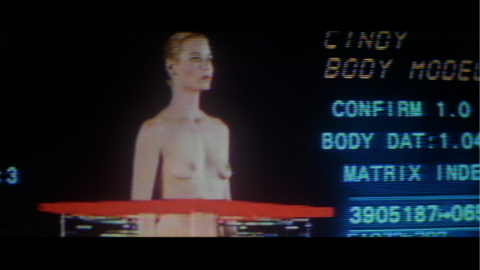



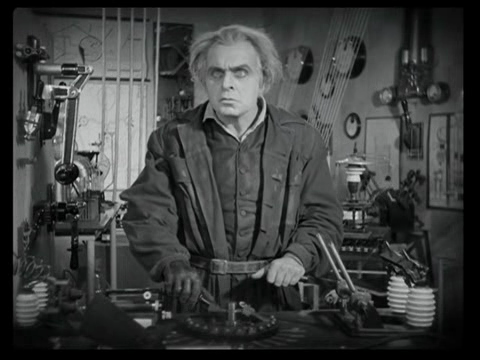
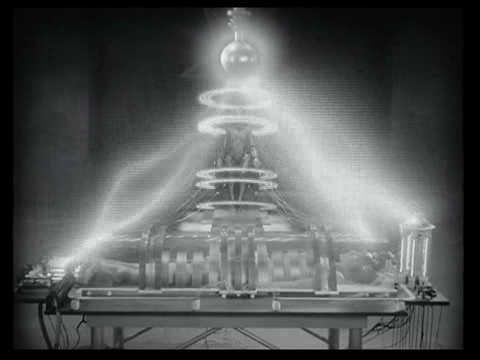
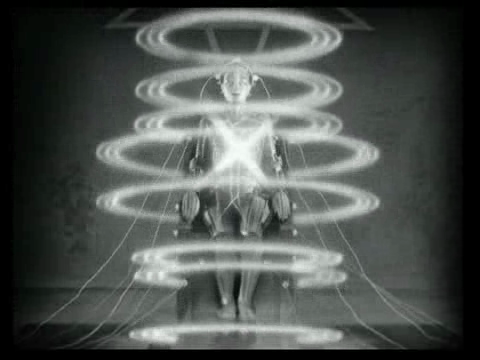
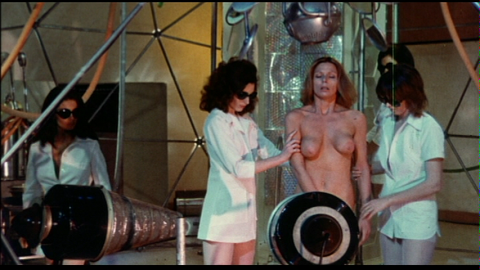

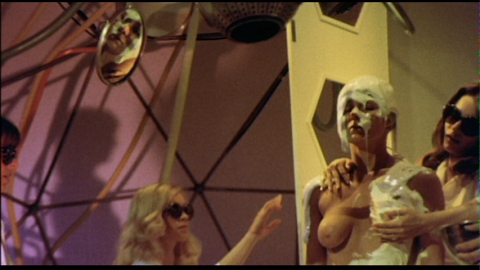
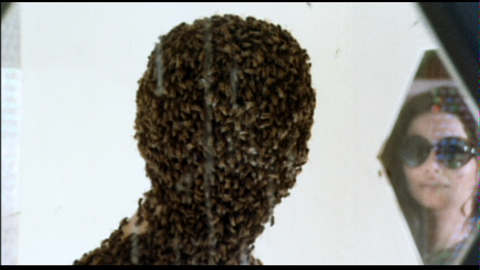
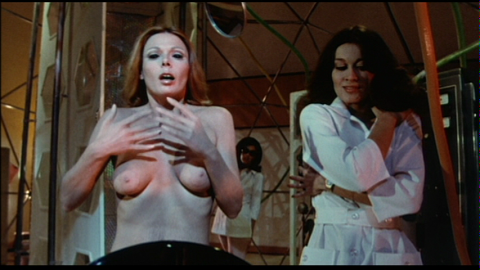
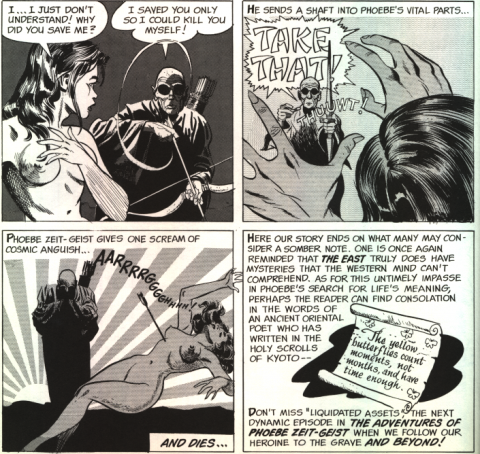

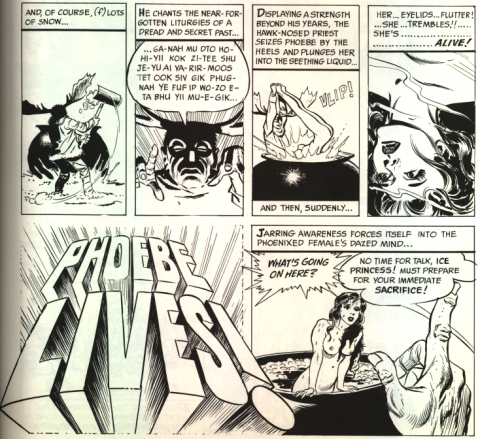
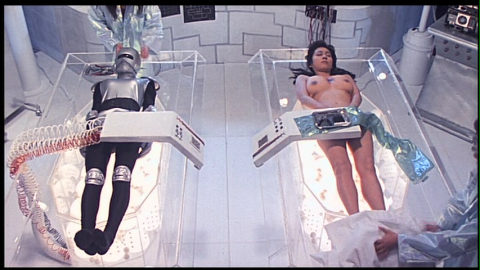


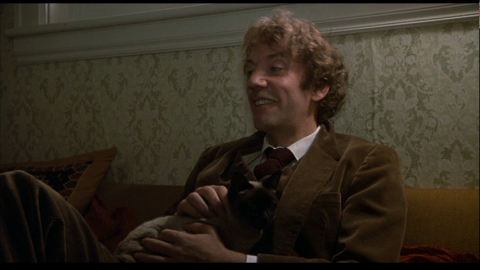

Congratulations on your new site, Faustus. Just dropped by from ErosBlog’s link, and I defintly like what I see here. And I admire you beyond words for writing this manifesto. A very, very intresting read. Good luck with this site!
Thanks! I had a great deal of fun writing this…
Ee! This is a brilliant manifesto, and I am happy to be here. And I’ve been in a comicing mood for a few days now, so if my world gets a little quieter, I may have to send you some sketches for that bit of script…
If you get the chance, I would be happy to see them.
Enjoyed your livejournal blog, by the way, in particular your “metasexuality” post, which seemed very much in the spirit of proceedings here. Cheers!
I have a different take on this and I really wished I had the time right now. I’ll go ahead and subscribe and when I have a chance I’ll leave my reply. Great blog by the way. I’m trying to get one going but my programming friend is slacking off on me. Thanks again for your post – Carmela Palen
As a certain Cat once said, “we’re all mad here.”
Here’s to Mad Science. May its defiance of the laws of God and Man alike continue to provide us entertainment (and erotica) for years to come.
And who knows, maybe some day all that science fiction might become science fact…
Thanks! I’ll definitely raise a glass to that.
Sounds like a good reason to get exercise and eat your vegetables.
Doctor, I like your manifesto! I dig the biographic bits as well and maybe we even share a few kinks. I’m happy I discovered this site and I’ll actively point my friends toward it, not without some pride. May wondrous things happen!
I love it. I wish others could understand it, too.
Doctor Faustus, Very interesting read. I look forward to perusing your blog more in the future. I find that your view of your experiences echo how I feel about many of mine, though as a visual artist the results are not nearly so well-worded, though perhaps more more likely to stub your toe-upon — if ever brought out of the dusty recesses of storage shelves. Life is often ‘madscience’ in my studio . . . and you have given me a different (better?) understanding of my place in it.
The more there are people like you, willing and able to speak up for diversity, the more there’s hope for humanity.
Thank you.
You’re welcome!